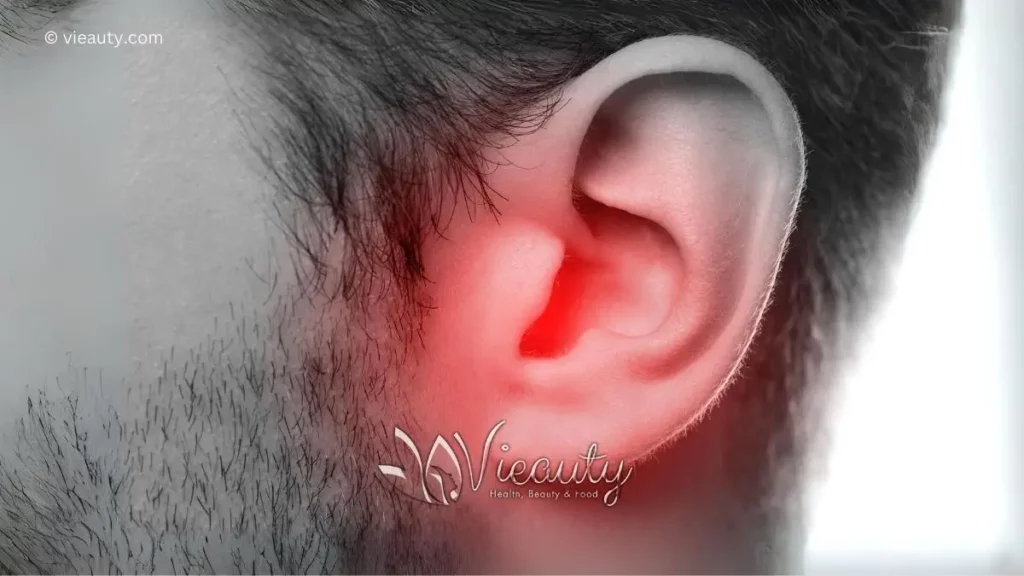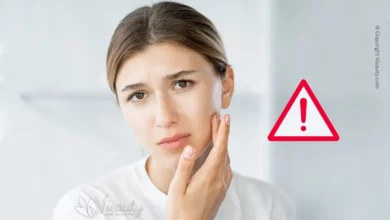How to Get Water Out of Your Ear
The quick and easy guide to getting rid of pesky water in your ear.
Having water trapped in your ear can be quite uncomfortable and even painful at times. Whether it’s from swimming, taking a shower, or being caught in the rain, removing water from your ear is a common problem that many people face. In this article, we will discuss various methods how to get water out of your ear, as well as some helpful tips to prevent water from getting trapped in the first place.
Table of Contents
- 7 Methods On How to Get Water Out of Your Ear
- #2. Jiggle your earlobe
- #3. Make gravity do the work
- #4. Create a vacuum
- #5. Use a blow dryer to remove water from your ear
- #6. Try eardrops or sprays
- #7. Try more water
- What not to do To get water out of your ear
- Preventing the Problem of water in the ear
- Frequently asked questions
- When to get help
- Takeaway
- Q: How can I prevent water from getting trapped in my ear?
- Q: What are some tips for removing water from my ear?
- Q: How long does it normally take for water to come out of your ear by itself?
- Q: Can putting hydrogen peroxide in my ear help remove water?
- Q: What should I do if the water in my ear is causing pain?
- Q: Can water in your ear lead to an ear infection?
- Q: How can I remove water from my ear if I have ear tubes?
- Q: Can using a hair dryer help to remove water from my ear?
- Q: Can the water in my ear cause an infection?
- Q: Should I try to remove earwax along with the water from my ear?
7 Methods On How to Get Water Out of Your Ear
Have you ever experienced the dreaded water-ear situation after a refreshing dip in the pool or a day at the beach? It’s like nature played a little joke on us by allowing us to have fun in the water, but then deciding to keep some for later inside our ears. But worry not, my fellow swimmer enthusiasts! In this article, we’re going to explore some clever techniques and home remedies that will help you bid farewell to that stubborn H2O stuck in your ear.

When water gets trapped in the ear canal, it can lead to a range of symptoms such as temporary hearing loss, discomfort, and even the risk of developing an ear infection. To get water out of your ear, you can try the following home remedies methods:
#2. Jiggle your earlobe
One of the most simple and effective methods to remove trapped water in your ear is by gently jiggling your earlobe. Tilt your head to the affected side and gently tug on your earlobe while shaking your head in a downward motion. This gentle movement can help the water to drain out of your ear.
#3. Make gravity do the work
Another method to remove water from your ear is by using gravity to your advantage. Lie down on your side with the affected ear facing downwards. Stay in this position for a few minutes and the water may drain out on its own to the outer ear.
#4. Create a vacuum
Creating a vacuum can also help to remove water from your ear. Tilt your head to the side and gently press the palm of your hand against your ear, creating a seal. Slowly push your hand in and out, making sure not to insert your finger into your ear canal. This gentle vacuum pressure can help to draw out the water from your ear.
#5. Use a blow dryer to remove water from your ear
A blow dryer can be an effective tool to remove water from your ear. Set the dryer to the lowest heat setting and hold it at least a foot away from your ear. Gently move the dryer in a back-and-forth motion towards your ear, allowing the warm air to help evaporate the trapped water.
#6. Try eardrops or sprays
If the above methods don’t work, you can try using eardrops or sprays specifically designed to remove water from the ears. These products contain ingredients such as rubbing alcohol or hydrogen peroxide, which can help to dry out the excessive moisture in your ear.
#7. Try more water
Believe it or not, sometimes the solution to removing water from your ear is by introducing more water. Tilt your head to the affected side and use a clean, sterile dropper to drop a few drops of warm water into your ear canal. Then, tilt your head to the opposite side to allow the water to drain out along with the trapped water.
What not to do To get water out of your ear
While there are several methods to remove water from your ear, there are also some things you should avoid doing as they can potentially make the situation worse. Here are a few things to avoid:
- Inserting cotton swabs or other objects into your ear canal can push the water further in and potentially damage your eardrum.
- Avoid using excessive force when trying to remove water, as it can cause injury to your ear.
- Do not use a blow-dryer on a high heat setting, as it can cause burns or other injuries to your ear.
Preventing the Problem of water in the ear
Prevention is always better than finding a cure. Here are some tips to prevent water from getting trapped in your ears:
- Use ear plugs or a swim cap when swimming to keep the water out of your ears.
- Tilt your head and gently shake it to remove any excess water after swimming or taking a shower.
- Avoid swimming in dirty or contaminated water, as it can increase the risk of developing an ear infection.
- If you have a history of frequent ear infections or water getting trapped in your ears, consider using ear drops before and after water activities to help prevent water from getting trapped.
Frequently asked questions
Will water come out of my ear naturally?
In most cases, water will eventually come out of your ear naturally. However, it may take some time depending on the amount of water trapped and your individual circumstances.
Why can’t I get water out of my ear?
There are several reasons why you may be struggling to get water out of your ear. It could be due to the position of the water, the shape of your ear canal, or excessive earwax that is preventing the water from draining.
What happens if you have water in your ear for too long?
If you have water in your ear for an extended period, it can lead to the development of an ear infection. The trapped moisture creates a moist environment, which can promote the growth of bacteria or fungi.
How do you open a blocked ear?
If you have a blocked ear, you can try several methods to open it up. These include yawning, chewing gum, swallowing, or using the Valsalva maneuver (holding your nose and gently blowing while keeping your mouth closed).
When to get help
If you have tried several methods to remove water from your ear and are still experiencing discomfort or hearing loss, it’s important to seek medical help. A healthcare professional can examine your ear and recommend appropriate treatment if needed.
Takeaway
Water trapped in your ear can be uncomfortable, but there are several ways to safely remove it. By following the methods mentioned in this article and taking preventive measures, you can keep your ears free from water and reduce the risk of developing ear infections. Remember, if you’re unable to remove the water or are experiencing prolonged discomfort, it’s always best to seek medical advice for proper evaluation and treatment.
N.B: This article is based on thorough research and information from reliable sources such as medical websites and expert opinions. The methods and tips mentioned are safe and commonly recommended for removing water from the ear. However, individual experiences may vary, and it is always advised to consult a healthcare professional for personalized advice.
Q: How can I prevent water from getting trapped in my ear?
A: To prevent water from getting trapped in your ear, you can try wearing ear plugs or a swim cap while swimming or showering. You can also tilt your head to the side and gently pull on your earlobe to help drain any water that may have entered your ear.
Q: What are some tips for removing water from my ear?
A: There are several methods you can try to remove water from your ear. You can try tilting your head to the side, hopping on one foot, or using a warm compress. You can also try using gravity by lying on your side with the affected ear facing down. If these methods don’t work, you can try using over-the-counter ear drops to help dry out your ear.
Q: How long does it normally take for water to come out of your ear by itself?
A: The time it takes for water to come out of your ear by itself can vary. It usually takes a few minutes to a couple of hours. However, if water is trapped in your ear for longer than 48 hours and you are experiencing pain, discomfort, or decreased hearing, it is recommended to seek medical attention.
Q: Can putting hydrogen peroxide in my ear help remove water?
A: Yes, putting a few drops of hydrogen peroxide in your ear can help remove water. The hydrogen peroxide solution helps break down any earwax or debris that may be blocking the ear canal and trapping the water.
Q: What should I do if the water in my ear is causing pain?
A: If the water in your ear is causing pain, it is important to seek medical attention. The pain could be a sign of an infection or a more serious condition, such as a perforated eardrum. A healthcare professional will be able to assess the situation and provide appropriate treatment.
Q: Can water in your ear lead to an ear infection?
A: Yes, water in your ear can lead to an ear infection, especially if the water becomes trapped and creates a moist environment. This can promote the growth of bacteria in the ear, leading to an outer ear infection, also known as swimmer’s ear.
Q: How can I remove water from my ear if I have ear tubes?
A: If you have ear tubes, it is best to consult with your healthcare provider for advice on how to remove water from your ear. They may recommend specific techniques or provide you with ear drops that are safe to use with ear tubes.
Q: Can using a hair dryer help to remove water from my ear?
A: Yes, using a hair dryer on the lowest heat setting from a safe distance can help to evaporate the water stuck in your ears. Be sure to hold the hair dryer at least several inches away from your ear and move it around to ensure even drying.
Q: Can the water in my ear cause an infection?
A: Yes, if water remains trapped in your ear for an extended period, it can create a moist environment that promotes the growth of bacteria. This can lead to an infection known as otitis externa or swimmer’s ear. It is important to take steps to remove water from your ear to avoid the risk of infection.
Q: Should I try to remove earwax along with the water from my ear?
A: It is generally not recommended to try to remove earwax along with the water from your ear. Earwax serves a protective function for the skin of the ear canal, and attempting to remove it yourself could potentially damage the skin or push the wax further into the ear. If you have concerns about excessive earwax, it is best to consult with a healthcare professional who can safely remove the wax if necessary.







Hi